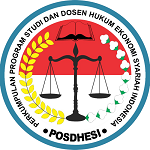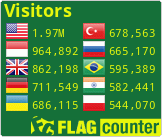The Impact of Delaying Mie Gacoan’s Halal Certification on Consumer Loyalty
DOI:
https://doi.org/10.32332/muamalah.v3i1.9223Keywords:
Halal Certification, Halal Industry, Halal Food, GacoanAbstract
This study aims to evaluate the impact of the delay in Mie Gacoan’s halal certification on consumer loyalty. The delay in halal certification can influence consumer perception and loyalty, yet there is limited research exploring its impact on the food industry in Indonesia. This study employs field research methods, using direct observation and a descriptive qualitative approach to collect and analyze data. The results indicate that most Mie Gacoan consumers know about the delay in halal certification. Despite this, consumers remain highly interested in visiting and purchasing Mie Gacoan products, as they trust that 100% of the raw materials used are safe and have been certified halal. These findings suggest that the delay in halal certification does not significantly affect purchase intentions and consumer loyalty. This research provides new insights into consumer responses to the delay in halal certification, demonstrating that consumer trust in the quality and safety of raw materials can mitigate concerns related to the delay, thus maintaining consumer loyalty to the product.
Downloads
References
Downloads
Published
Issue
Section
License
Copyright (c) 2024 Lukmanul Hakim, Imron Rosyadi, Almasah Farah Diah Setyawati

This work is licensed under a Creative Commons Attribution-ShareAlike 4.0 International License.
All articles in the Mu'amalah: Jurnal Hukum Ekonomi Syariah can be disseminated on condition that they still include the identity of the article and the source (Mu'amalah). The publisher is not responsible for the contents of the article. The content of the article is the sole responsibility of the author.
Authors who publish this subject agree to the following terms:
First, the Authors retain copyright and grant the journal rights from the first publication with the work simultaneously licensed under a Creative Commons Attribution-ShareAlike 4.0 International License that allows others to share the work with an acknowledgement of the work's authorship and initial publication in this journal.
Secondly, the authors can enter into a separate or an acknowledgement of its initial (e.g., post-institutional repository or publish it in a book) publication in this journal.
![]()
Third, the authors are permitted and encouraged to post their work online (e.g., in institutional repositories or on their website) before publishing work is cited.








